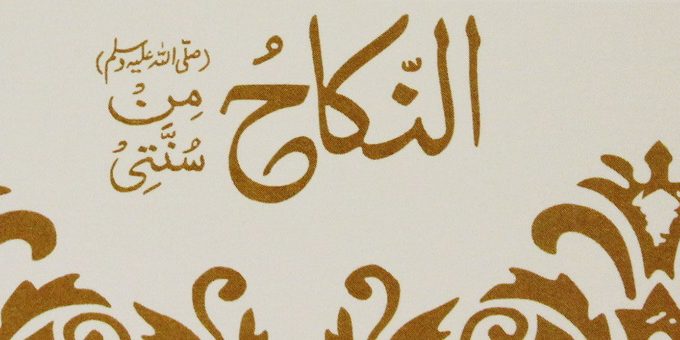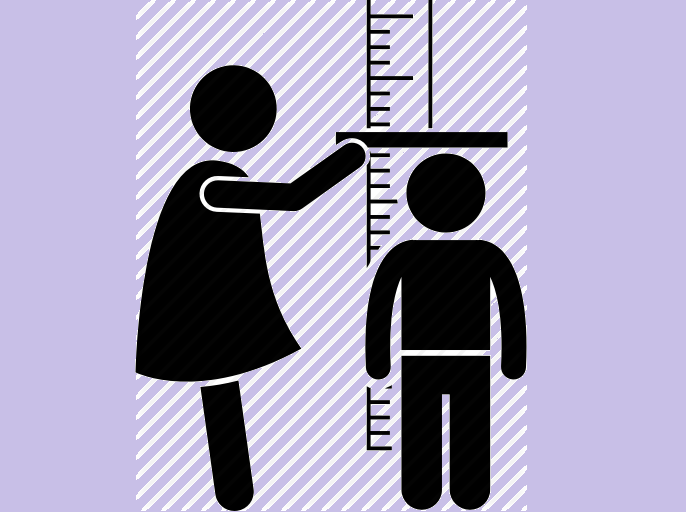QUESTION:
What do the scholars of the Dīn and muftīs of the Sacred Law state regarding the following issue: I wish to marry a certain man; my mother and father are not happy with this partnering, which is why they have thrown me out of the house. At this current moment in time, I am living with my paternal uncle; my paternal uncle and his wife are happy with me marrying that man. So, can I marry that man without the consent of my mother & father?
Questioner: Sister from UK
ANSWER:
بسم اللہ الرحمن الرحیم
الجواب بعون الملک الوھاب اللھم ھدایۃ الحق والصواب
If a woman married such a man who was compatible with her i.e. he is such in religion, lineage, occupation and conduct & behaviour that it will not be a cause of shame & disgrace, but her parents were not happy with this, nor did they give their consent, then in such case, the marriage will be valid. And if one married someone incompatible, then the marriage has not even been contracted; rather, such a marriage will be regarded as invalid, according to Islamic Law.
In the aforementioned case, if the man you wish to marry is compatible with you, then the marriage will be valid; otherwise, you will not be able to marry that man in the case of not being compatible; you will actually remain unlawful for him.
It is stated in Fatāwā ‘Ālamgīrī,
”المَرْأَةُ إذَا زَوَّجَتْ نَفْسَهَا من غَيْرِ كُفْءٍ صَحَّ النِّكَاحُ في ظَاهِرِ الرِّوَايَةِ۔۔۔۔ وَلَكِنْ لِلْأَوْلِيَاءِ حَقُّ الِاعْتِرَاضِ وَرَوَى الْحَسَنُ عن أبي حَنِيفَةَ رَحِمَهُ اللَّهُ تَعَالَى أَنَّ النِّكَاحَ لَا يَنْعَقِدُ وَبِهِ أَخَذَ كَثِيرٌ من مَشَايِخِنَا رَحِمَهُمْ اللَّهُ تَعَالَى وَالْمُخْتَارُ في زَمَانِنَا لِلْفَتْوَى رِوَايَةُ الْحَسَن۔”
“If a woman has herself married an incompatible man, so it is stated in Zhāhir al-Riwāyah[1] that the marriage of such is valid but the guardians (i.e. in relation to marriage) have the right to object. And Imām Hasan – may Allāh have mercy upon him – has narrated from Imām A’zham Abū Hanīfah – may Allāh have mercy upon him – that such a marriage will not even be contracted. This very stance has been chosen by of our Shaykhs – may Allāh Almighty have mercy upon them all. And the narration of Imām Hasan – may Allāh have mercy upon him – has been chosen as Islamic legal verdict for our era.”
[Taken from Fatāwā ‘Ālamgīrī, vol. 1, p. 292]
It is stated in Durr Mukhtār,
”(وَيُفْتَى) فِي غَيْرِ الْكُفْءِ (بِعَدَمِ جَوَازِهِ أَصْلًا) وَهُوَ الْمُخْتَارُ لِلْفَتْوَى (لِفَسَادِ الزَّمَانِ) ۔”
“The Islamic legal verdict of impermissibility, in essence, will be issued regarding marriage in the case of incompatibility. And it is this which has been selected for the Islamic legal verdict due to there being chaos in our era [if this was not the case].”
[Durr Mukhtār, vol. 4, p. 152]
A’lāhadrat, Imām Ahmad Ridā Khān – may Allāh have mercy upon him – states in Fatāwā Ridawiyyah, ‘A pubescent female may get married herself without the permission of a guardian, but only in the case of compatibility i.e. the male whom she marries must not be so lower in religion, lineage, occupation or conduct & behaviour that marrying him would be a cause of dishonour & shame to her guardian(s). If she herself willingly & happily gets married to someone incompatible and she has also brought a guardian along with her, and he/she [i.e. the guardian] has clearly not given permission whilst knowing beforehand – before the marriage – of the incompatibility, then the marriage will not have even occurred.’
[Fatāwā Ridawiyyah, vol. 11, p. 275]
Sadr al-Sharī’ah, Muftī Amjad ‘Alī A’zhamī – may Allāh have mercy upon him – states in Bahār-e-Sharī’at, ‘If a free pubescent female of sense got married to someone compatible without the permission of a guardian, then the marriage will be valid. And if it was with someone incompatible, then it will not, even if he/she [i.e. the guardian] was happy with it after the marriage [ceremony].’
[Bahār-e-Sharī’at, vol. 2, part 7, p. 46]
It is stated in Bahār-e-Sharī’at that the meaning of compatibility is that a male is not to be so lower than a woman in religion, lineage, occupation or conduct & behaviour that marrying him would be a cause of dishonour & shame to her guardians. In compatibility, six things are considered:
1 – Lineage
2 – Islām
3 – Occupation
4 – Being free [i.e. not a slave]
5 – Honesty & integrity
6 – Wealth
[Taken from Bahār-e-Sharī’at, vol. 2, part 7, p. 53]
Note
Until a mother & father have not said to do a sinful action, it is Fard upon their children to obey them; only in this is there success for a person. The pleasure of Allāh is in the happiness and pleasure of a mother & father, and the displeasure of Allāh is in their displeasure. Going against what they are saying and upsetting them is extreme deprivation; it is a cause of the displeasure of Allāh Almighty. Hence, when one’s parents are not happy with that partnering, one should leave that partnering. One should not provide fuel to the fire of destruction for one’s Hereafter by upsetting one’s mother & father over a partnering.
It is narrated from the respected ‘Abdullāh Ibn ‘Amr – may Allāh be pleased with them both,
”أَنّ رَسُولَ اللهِ صلى الله عليه وسلم قَالَ رِضَى الرَّبِّ تَبَارَكَ وَتَعَالَى فِي رِضَى الْوَالِدِ، وَسَخَطُ الرَّبِّ فِي سَخَطِ الْوَالِدِ۔”
“The Noble Messenger of Allāh ﷺ stated, ‘The content of Allāh is in the content of a mother & father, and His displeasure is in the displeasure of a mother & father.’”
[Musnad Bazzār, vol. 1, Hadīth no. 2394]
The Noble Prophet ﷺ advised the respected Mu’ādh – may Allāh be pleased with him – of ten things. From those advised matters, one of them was,
”وَلَا تَعُقَّنَّ وَالِدَيْكَ وَإِنْ أَمَرَاكَ أَنْ تَخْرُجَ مِنْ أَهْلِكَ وَمَالِك”
‘(O Mu’ādh [may Allāh be pleased with him]! Never disobey your parents, even if they tell you to leave the house and your wealth.’
[Musnad Ahmad Ibn Hanbal, Hadīth no. 21060]
A’lāhadrat, Imām Ahmad Ridā Khān – may Allāh have mercy upon him – states that obeying parents in permissible matters is Fard. Yes, if they mention to do an impermissible matter, it is not therefore permissible to obey them in this.
“لَاطَاعَۃَ لِاَحَدٍ فِی مَعْصِیَّۃِ اﷲ تَعالٰی۔”
“There is no obedience of anyone in disobedience to Allāh Almighty.”
[Fatāwā Ridawiyyah, vol. 21, p. 157]
[1] [particular legal texts]
واللہ تعالی اعلم ورسولہ اعلم صلی اللہ علیہ وآلہ وسلم
کتبہ ابو الحسن محمد قاسم ضیاء قادری
Answered by Mufti Qasim Zia al-Qadri
Translated by Haider Ali Madani
Read the original Urdu answer here: [Q-ID0812] Can I marry someone against my parents wishes?
Also see:
[Q-ID0195] A woman got married with her Father & brothers absent – is the nikah valid?




















































